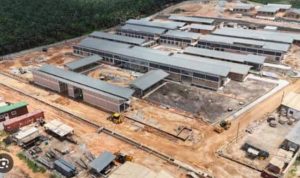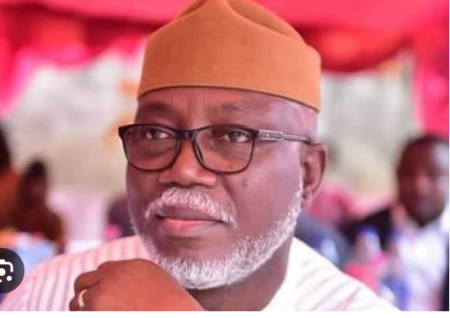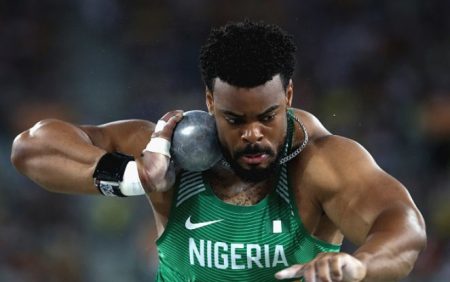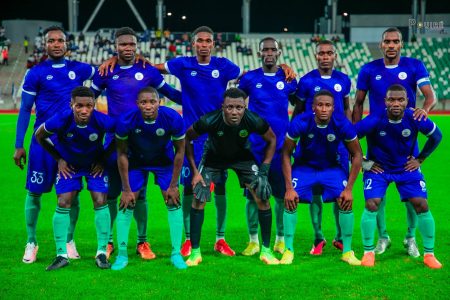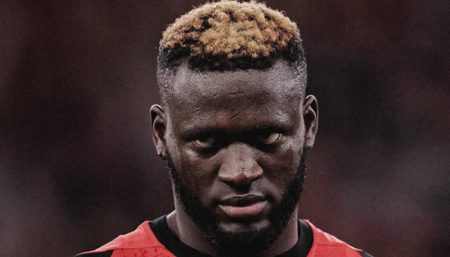The inaugural 32-team FIFA Club World Cup, hosted across the United States, presents a unique opportunity for nations beyond the traditional footballing powerhouses to showcase their talent on a global stage. While much of the attention is focused on established stars and European giants, Nigeria quietly boasts a notable contingent of five full internationals and three heritage players, spread across four participating teams. This tournament offers these players a chance to prove their mettle and potentially elevate their careers, adding another dimension to Nigeria’s footballing narrative beyond the often-inconsistent performances of the Super Eagles.
Zaidu Sanusi, a seasoned Super Eagles left-back, represents Nigeria at FC Porto. Sanusi’s recent career trajectory has been hampered by persistent injuries, specifically an ACL tear that sidelined him for a significant portion of the past season. Despite limited playing time, his inclusion in Porto’s squad for the Club World Cup highlights his experience and defensive prowess, qualities that could prove valuable in the demanding tournament environment. Porto, drawn into a challenging group alongside Lionel Messi’s Inter Miami, Brazilian powerhouse Palmeiras, and African champions Al Ahly, will need to rely on a disciplined defensive approach, and Sanusi’s continental experience could be a crucial asset.
Al Ain, the most decorated club in the UAE, contributes three Nigerian players to the tournament: forward Rilwanu Sarki, goalkeeper Hassan Muhammed, and midfielder Joshua Udoh. Sarki, a relatively unknown quantity with burgeoning potential, offers Al Ain tactical depth with his raw pace and attacking drive. While Muhammed and Udoh are yet to make their professional debuts, their inclusion signifies Al Ain’s long-term strategic vision and acknowledges Nigeria’s growing influence in Gulf football. For these young players, the Club World Cup offers an invaluable developmental experience on a grand stage.
Esperance de Tunis fields Onuche Ogbelu, a promising Nigerian midfielder recognized for his industrious performances at the youth level. Ogbelu’s defensive contributions, marked by consistent tackling and recoveries, are crucial to Esperance’s midfield stability. While his goal contributions are limited, his tireless work rate and defensive acumen make him a valuable asset for the Tunisian side, particularly against technically proficient opponents. He is poised to be one of Nigeria’s most active players in the tournament, showcasing his tenacity and tactical discipline.
Chelsea’s squad features three players of Nigerian descent, eligible to represent the Super Eagles despite having played for England at youth levels. Tosin Adarabioyo, a recently acquired centre-back, brings Premier League experience and defensive solidity to Chelsea’s backline. His performances in the Conference League, where he played a pivotal role in Chelsea’s title-winning campaign, further underscore his importance to the team. Tyrique George, a young winger, and Carney Chukwuemeka, a versatile midfielder currently on loan at Borussia Dortmund, complete the trio of heritage players, each possessing unique skills and potential that could add to Nigeria’s footballing future.
The combined presence of Nigeria’s full internationals and diaspora players highlights the global reach and diverse nature of this expanded Club World Cup. The tournament showcases a deep pool of talent from 63 countries, with Brazil, Argentina, Spain, and Portugal leading the player representation. While Nigeria’s total of five registered players and three heritage players places them among countries with fewer than ten participants, their presence underscores the nation’s continued contribution to the global football landscape. The tournament represents a platform for these players to demonstrate their abilities and potentially attract further attention, furthering their careers and solidifying Nigeria’s place on the world stage.
The Club World Cup provides a unique opportunity for players like Sanusi to regain form and confidence after injury setbacks. For younger players such as Sarki, Muhammed, and Udoh, it’s a chance to gain invaluable experience against top-level competition. Ogbelu’s consistent performances in a demanding midfield role further solidify his reputation as a reliable and disciplined player. And for the heritage players at Chelsea and Dortmund, the tournament can serve as a springboard to higher levels of recognition within the global football community. The Club World Cup not only showcases the present talent within Nigerian football but also offers a glimpse into the future potential of the nation’s footballing prospects. It’s a stage where established players can reassert themselves and emerging talents can announce their arrival. This diverse representation emphasizes the increasing globalization of football and highlights Nigeria’s continuing contribution to the beautiful game.



